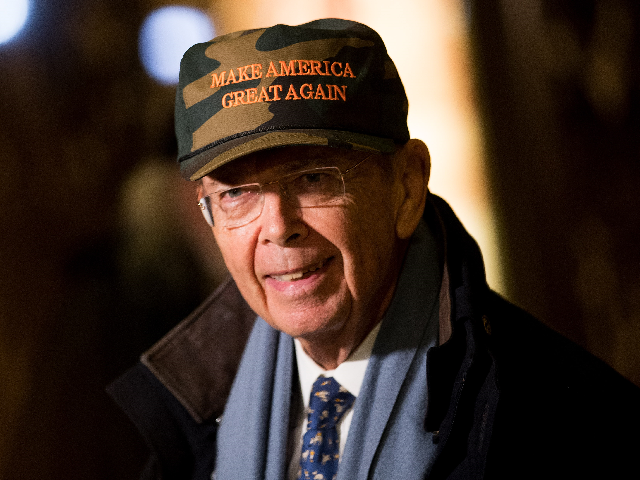President Donald Trump is expected to sign a pair of executive orders on Friday afternoon aimed at identifying and combatting abusive foreign trade practices.
The orders direct the government to launch a large-scale study of the massive and persistent U.S. trade deficit and instruct regulators to strictly enforce U.S. anti-dumping policies aimed at preventing foreign manufacturers from undercutting U.S. companies with unfairly low prices. They mark the latest step in the administration’s efforts to bolster U.S. manufacturing and prevent trading partners from taking advantage of the U.S.’s free trade stance.
The signing of the orders comes a day after an eruption of trade policy intrigue surrounding a leaked draft memo from the U.S. Trade Representative’s office to members of Congress. The memo outlined proposed changes to the North American Free Trade Agreement that were far less sweeping than Trump’s statements on the campaign trail appeared to imply. Hours after the Wall Street Journal and Bloomberg News reported that the memo signaled a softening of the administration’s stance on NAFTA, White House press Secretary Sean Spicer said the memo did not reflect the administration’s views.
“That is not a statement of administration policy. It is not a statement of administration policy,” Spicer said.
The memo was leaked to journalists by members of the U.S. Senate, according to people familiar with the matter. Despite the statement from Spicer, the memo showed that some in the Trump administration are pushing to soften its stance on trade issues, these people said.
In a briefing with reporters on Thursday, Commerce Secretary Wilbur Ross said that one of the orders instructs Commerce and the U.S. Trade Representative to work together to conduct a sweeping review of the causes of U.S. trade deficits. While trade deficits with some countries–particularly those with oil exporting countries–are to be expected and not the result of abusive practices, persistent trade deficits in manufactured goods may be the result of unfair trade practices.
Examples of abusive trade practices include manufacturers selling goods below their cost of production and unfair subsidies aimed at undercutting U.S. manufacturers.
The report produced by the study will be the basis for the administration to implement policies cracking down on these abuses, according to Commerce Department officials.
The orders come a week before Trump is set to meet with Chinese President Xi Jinping. While China is the largest source of the U.S.’s trade deficit, Ross and Peter Navarro, director of the National Trade Council, insisted Thursday that the directives were not aimed at China in particular. Sources in the administration say the orders could allow Trump to avoid detailed trade discussions with the Chinese leader by citing the ongoing study.
The second order will address the failure of U.S. agencies to collect anti-dumping penalties. Foreign manufacturers often avoid paying these by exporting to the U.S. through under-capitalized shell companies that lack the funds to pay the penalties. The order will require foreign companies exporting to the U.S. to have financial resources that can be drawn upon to pay penalties for trade abuses.

COMMENTS
Please let us know if you're having issues with commenting.